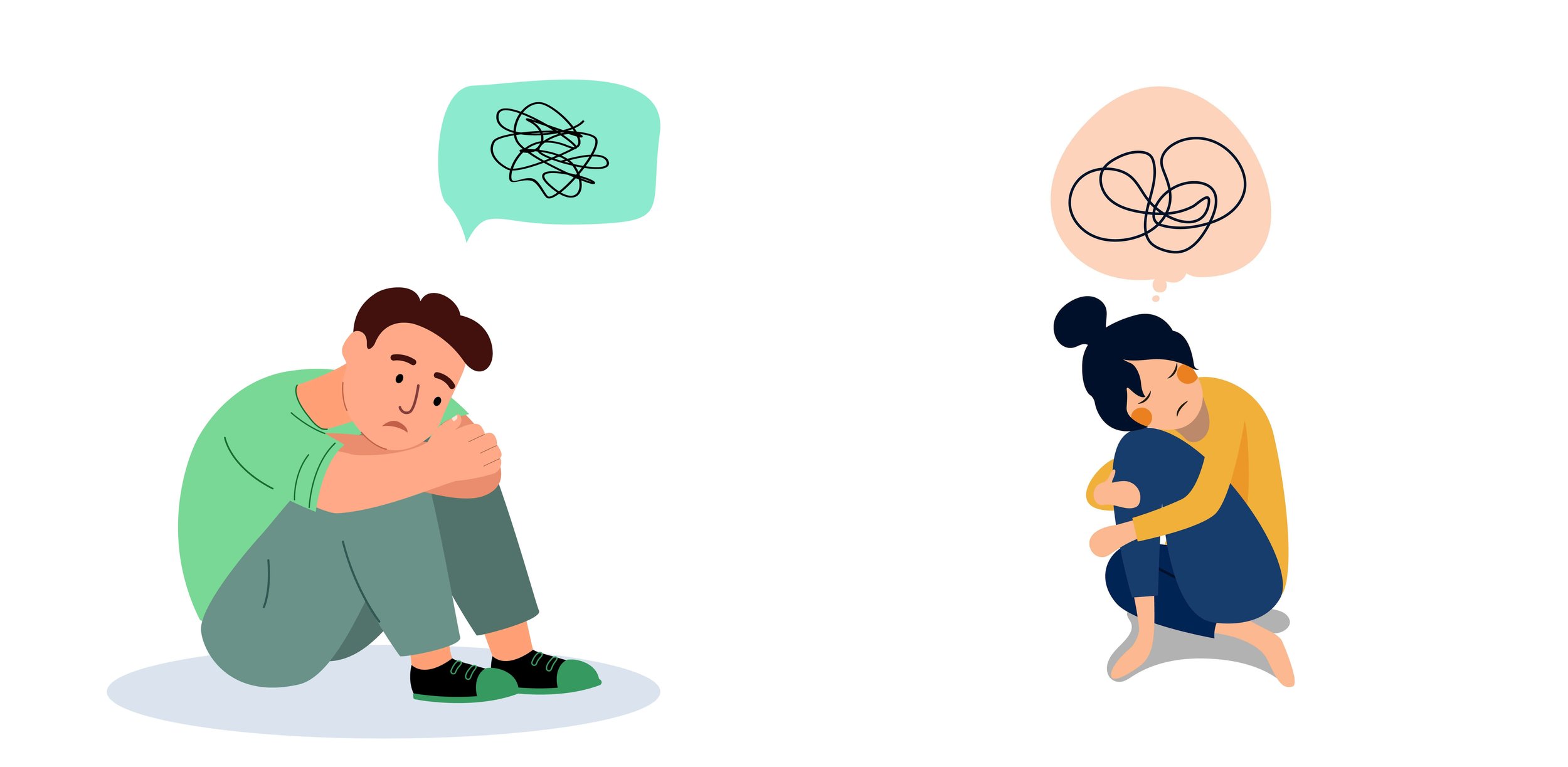How To Ask For Help With Depression - Get Help Today
Depression is a serious mental health condition that can affect many aspects of life, from relationships to work. It can be difficult to cope with its symptoms and effects, but help is available. Asking for help is an important step in managing depression and taking control of one's life. Reaching out to family, friends, healthcare professionals, or support groups can provide the understanding and guidance needed to better manage depression. Knowing what resources are available and how to ask for help with depression are crucial steps in getting the support needed.
What is Depression?
Depression is a mood disorder that causes persistent feelings of sadness and worthlessness. It can cause disruptions in sleep, eating habits, energy levels, and concentration. Symptoms may include changes in appetite, fatigue, restlessness, loss of interest in activities that were once enjoyed, difficulty concentrating or making decisions, and thoughts of death or suicide. While the exact cause of depression is unknown, it may be due to a combination of genetic factors as well as environmental influences. Treatment typically includes therapy and/or medication, depending on the severity of the symptoms.
Understanding the Signs and Symptoms of Depression
It is important to understand the signs and symptoms of depression in order to recognize it in yourself or someone else. Depression can manifest in many different ways and can range from mild to severe.
Common signs of depression include:
Persistent feelings of sadness
Worthlessness or emptiness
Changes in appetite with weight gain or loss
Changes in sleep patterns like insomnia or oversleeping
Fatigue and lack of energy
Difficulty concentrating or making decisions
Restlessness
Loss of interest in activities that were once enjoyable
Irritability
Persistent thoughts of death or suicide
If you are experiencing any of these symptoms, it is important to reach out for help as soon as possible.
Tips on How To Ask For Help
Taking action now to get help with depression is a vital step in managing the condition. It can be daunting to take that first step, but doing so is essential for finding relief and regaining control of your life.
A qualified mental health professional can offer personalized diagnosis and treatment options. A quality therapist or psychiatrist can provide diagnosis and treatment options tailored specifically for you.
Connecting with loved ones for emotional support is beneficial when addressing depression. Having someone who understands what you’re going through can make a huge difference in how you feel about yourself and your situation. They may even be able to offer advice or connect you with helpful resources like support groups or online forums where others are dealing with similar issues as well.
Exploring digital means of accessing data is an excellent method to obtain knowledge rapidly and conveniently from the comfort of one’s home.
There are many websites dedicated solely to providing education, guidance, and tools related to depression such as self-help strategies, lifestyle changes, coping skills, medication options, etc., all at no cost. Apps are available too that provide users with tailored tracking capacities, allowing them to observe their advancement over time and stay inspired on the path towards recuperation.
How do you ask for help when you're struggling?
Start by identifying who can provide the most effective assistance in your situation. Reach out and articulate your struggles, inquiring whether they can provide any counsel or treatment.
Be open to their suggestions, and be open to accepting help when offered. Ask questions about how you can best move to your next steps, so that together with the ideal guidance, you may find a successful solution.
How do you ask for support when you're sad?
When feeling down, it is essential to seek out assistance from those around you. An excellent way to do this is by talking with someone you trust and feel comfortable confiding in.
You can turn to a loved one, an acquaintance, or even a mental health practitioner for help. Remember that asking for help does not make you weak; instead, it shows strength and courage in facing difficult emotions head-on. Everyone needs support at times, so you shouldn't be afraid to ask.
How should I ask for mental help?
You can ask for mental help in person or over the phone. If you want professional care, look for a list of therapists in your area.
Recognize that you need help: The first step in seeking mental help is recognizing that you need it. If you're feeling overwhelmed, stressed, or struggling to manage your emotions or thoughts, it's time to reach out for support.
Choose someone you trust: Think about who you feel comfortable talking to about your mental health concerns. It could be a friend, family member, teacher, or healthcare provider. Choose someone who is supportive and non-judgmental.
Be honest and direct: Once you've chosen someone to talk to, be honest and direct about your mental health concerns. Let them know how you're feeling and what you're struggling with. It's okay to ask for their help and support.
Seek professional help: If you're struggling with a mental health condition, it's essential to seek professional help from a therapist or psychiatrist. You can ask your primary care physician for a referral or look for a mental health provider in your area.
If you don't know where to begin, talk to a friend or family member. They can help you research qualified therapists, and they can help you get to your first appointment.
Treatments Available for Depression
Depression is a serious mental health condition that can have a negative impact on all aspects of a person's life, including relationships, work, and physical health. Luckily, effective treatments for depression are available to help patients manage their symptoms and live more fulfilling lives.
The most common type of treatment for depression is psychotherapy, which involves talking with a mental health professional about your thoughts and feelings. Cognitive Behavioral Therapy (CBT) has been proven to be an effective treatment for depression, as it helps patients identify and change unhelpful patterns of thinking and behavior. Antidepressant medications can also be used to help alleviate symptoms of depression, such as low mood and lack of energy. It's important to consult with a mental health professional to determine the best treatment plan for your individual needs.
Seeking Professional Help
Seeking professional help can be a difficult but important step in managing depression. Professional mental health providers such as therapists, psychiatrists, and counselors are trained to assess your individual needs and create a treatment plan that is tailored to you. Talking openly about your feelings with someone who is understanding, non-judgemental, and knowledgeable about the best treatment options for depression can be empowering and provide relief. It is important to remember that there is no one-size-fits-all approach to treating depression; different therapies work for different people, so it's important to find the right fit for you. With the support of a qualified mental health provider, you can find relief from your symptoms and learn how to better manage them.
Talking to a Mental Health Professional
Talking to a mental health professional is an important step in managing depression. A qualified and experienced therapist, psychiatrist, or counselor can create a treatment plan that is tailored to your individual needs. They are knowledgeable about the best strategies for managing depression and can provide guidance on how to cope with symptoms. When talking to a mental health professional, it’s important to be open and honest about your feelings. It may also be helpful to come prepared with questions about the treatment options available so you can make an informed decision about which option is right for you. Mental health professionals are there to provide support and understanding, so it’s important to take advantage of their services and trust that they have your best interests at heart.
Overcoming Barriers to Asking for Help with Depression
Seeking aid for depression can be a daunting task, with challenges such as the social stigma and criticism, monetary issues, or limited access to assistance.
Fear of Stigma and Judgment
Many people are reluctant to seek help because they fear others will judge them or think they're weak or crazy. Judgment from others is a very serious concern that society needs to address in order for individuals to feel comfortable asking for help.
However, it's much better to get the help you need. If you feel like you can't trust your family, contact your friends or even your current primary care physician. Don't let a fear of judgment keep you from receiving treatment.
Financial Concerns
Another barrier is cost; many people don't have insurance coverage or cannot afford private therapy sessions out-of-pocket. Despite not having insurance, there are still methods to access therapy; for example, some clinics provide a sliding fee scale or local government agencies may offer free services.
You shouldn't have to let a lack of money or insurance affect your ability to get help.
How Mindful Can Help
Mindful is a team of mental health professionals dedicated to providing high-quality, holistic care to individuals seeking support for their mental well-being. Our mission is to help individuals improve their overall mental health by combining traditional psychiatric treatments with alternative therapies such as meditation, yoga, and mindfulness practices.
Our online telehealth services provide convenient access to our team of trained professionals, who work closely with each patient to create a personalized care plan that addresses their unique needs and goals. We specialize in psychiatric medication management and provide support for a range of mental health conditions, including ADHD, depression, anxiety, bipolar disorder, and more.
At Mindful, we believe in taking a whole-person approach to mental health care, focusing not just on the symptoms but also on the underlying causes of mental health issues. We understand that each person's journey to mental wellness is different, which is why we prioritize personalized care and work collaboratively with our patients to develop treatment plans that are tailored to their individual needs and goals.
Our team is committed to helping individuals live happier, healthier lives by providing compassionate, effective mental health care that integrates traditional and alternative therapies. Whether you're seeking medication management, therapy, or a combination of both, we're here to support you on your path to wellness.
Find The Help You Need Today
Asking for help with depression can be a difficult and daunting process. Though it can be a challenge, taking the initial step toward recovery is essential to start healing from depression.
Don't forget that there are accessible options available, both professional and personal approaches, which can supply aid as you strive for recovery. You shouldn't wait any longer; take action now and ask for help with depression today.
If you are struggling with depression, get in touch with our team here at Mindful today and book a free consultation.




